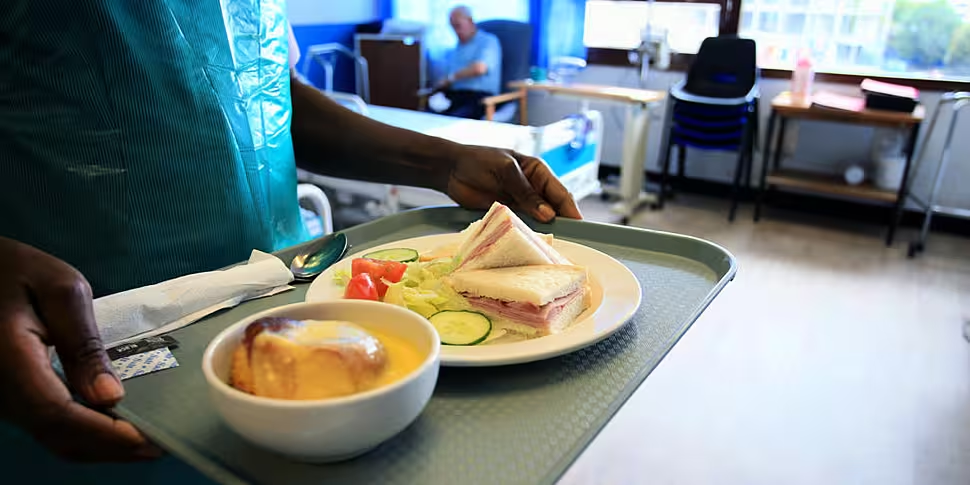A new Health Service Executive (HSE) report on food and nutrition in acute hospitals has said fat, sugar and salt should not be limited.
It has also said that any diet must contain fruit and vegetables, cereals and breads, potatoes, pasta and rice - as well as three servings per day of full fat dairy products.
It has also recommended two servings per day from the meat, poultry, fish, eggs, beans, and nuts group.
While fish is to be provided at least twice a week, including oily fish at least once per week.
Patients on admission to hospital could also be assessed to detemine their food, nutrition and hydration needs.
Any assessment would include nutrition screening for risk of malnutrition, which would be repeated weekly for inpatients.
The assessment should identify and record weight and height, Body Mass Index (BMI) and existing therapeutic or texture modified dietary requirements.
The report, 'Food, Nutrition and Hydration Policy For Adult Patients in Acute Hospitals', hopes to improve the quality and safety of food and nutritional care in acute hospitals.
It also hopes to ensure that key areas of improvement recommended by the Health Information and Quality Authority (HIQA) are addressed.
A National Patient Experience Survey in 2018 saw over 13,000 patients take part, to find out what was working well in Irish hospitals and what needed to be improved.
Barbara Gillman, clinical specialist renal dietitian, led out on the project.
She explained the importance of nutritional screening and tailored meal plans for every patient.
"On admission to hospital, patients will be screened to assess if they are nutritionally well or nutritionally at risk from conditions such as malnutrition, diabetes, allergies, swallowing issues, or perhaps they may need assistance with feeding or aids for eating and drinking.
"Once their needs are assessed, they will be assigned an appropriate hospital menu, or will be referred to a dietitian for a nutritional care plan and assistance if necessary. The patient will then be screened weekly to ensure their needs continue to be met".
Margaret O' Neill, HSE national dietetic advisor, outlined the impact of malnourished patients in acute hospitals.
"Malnutrition is directly related to increased length of stay and complications for patients.
"It adversely affects every system in the body and increases mortality risk at all ages and across care settings.
"By undertaking screening on admission and by making mealtimes matter, hospital staff are promoting and maintaining an environment that is conductive to people enjoying their meals and having appropriate assistance to safely consume optimal amounts of their foods and drinks."









